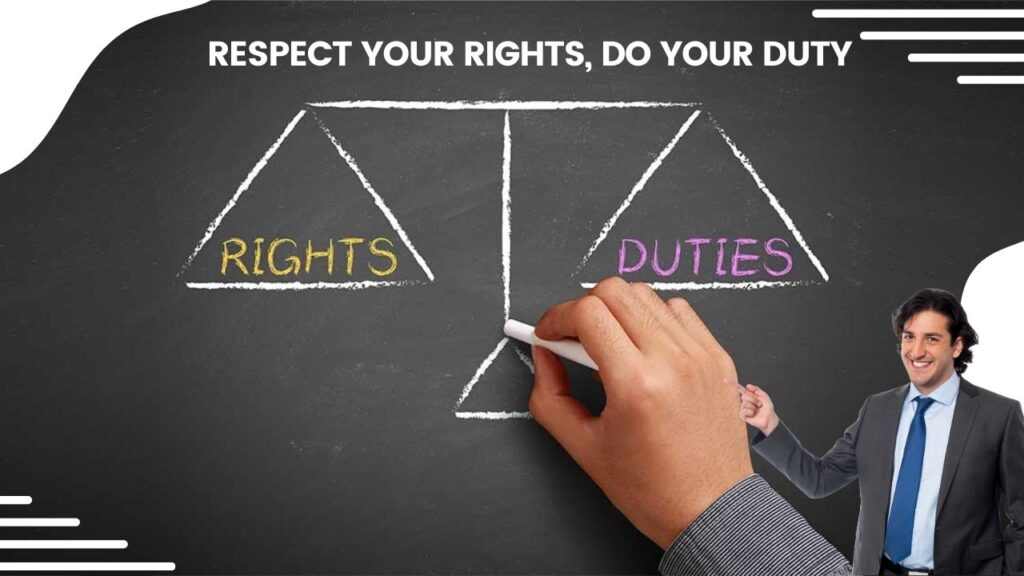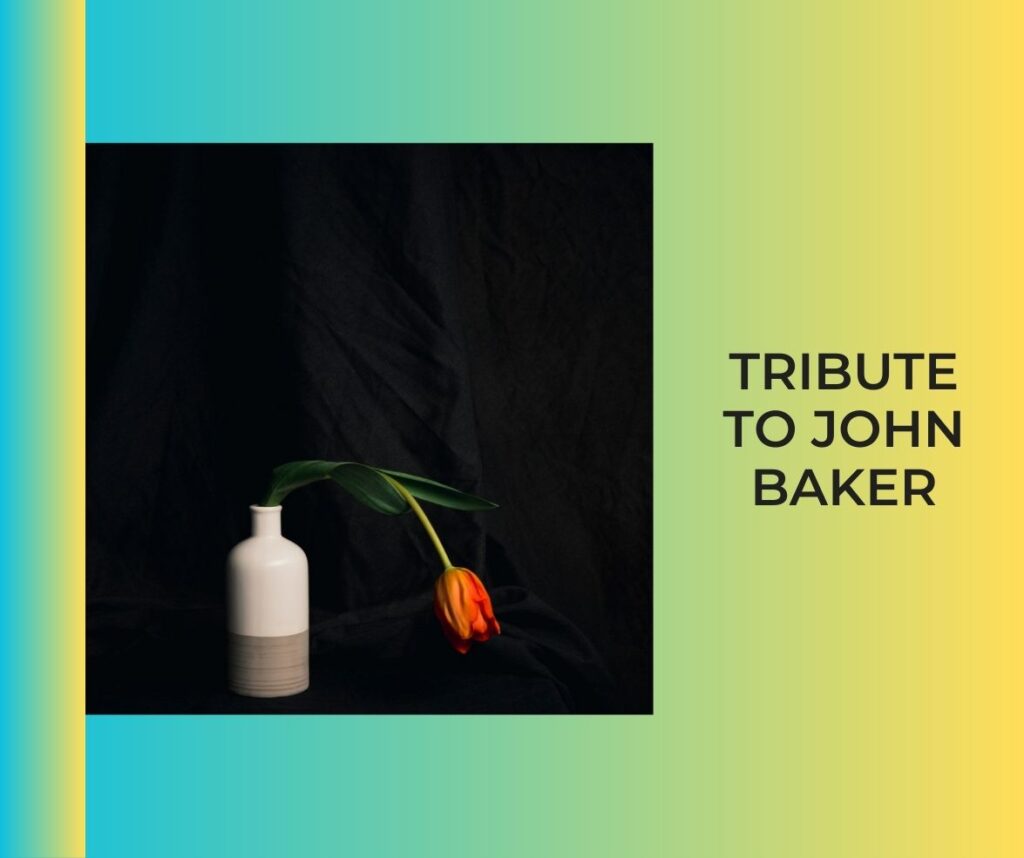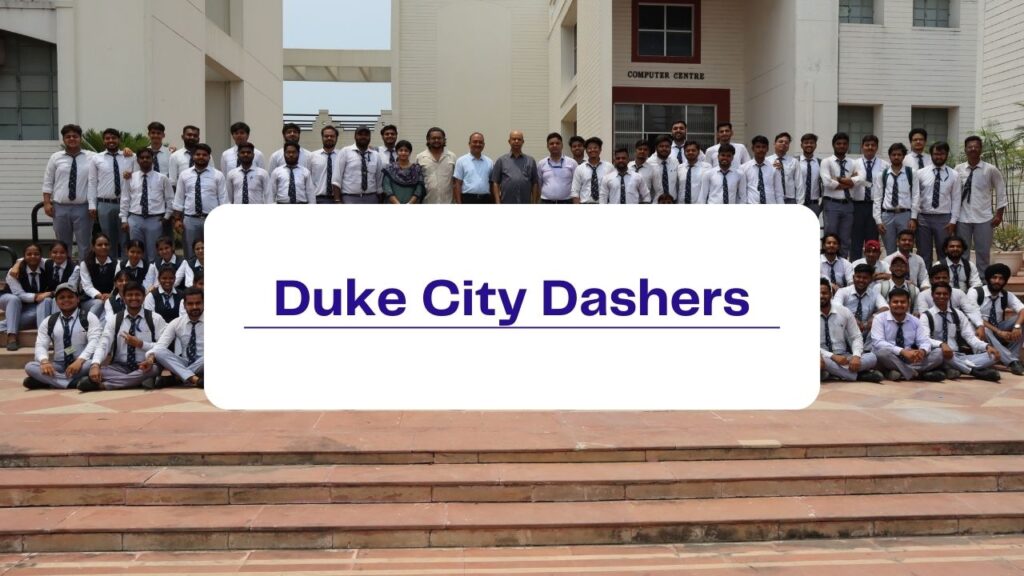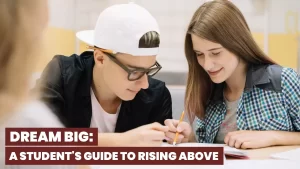If everybody makes a contribution to the betterment of society, then a better world can be created. This is the message from the inspiring story of John Baker, who dedicated his life to making a positive contribution to the world.
Every day we find people talking about their rights, and asking for their dues from their bosses, their organizations, their leaders, their governments, their family, their peers, and their friends. It’s nice to be aware of one’s rights and people should also be conscious about what one rightfully deserves.
The most common phrases that you might listen to in day-to-day life are:
- “I want…”
- “I deserve…”
- “I should get…”
- “They can’t deny…”
- “We must fight…”
- “Let’s agitate…”
It means we are a very conscious society about our rights, and it’s good for democracy. But as in any transaction, if there is debit, there’s got to be credit somewhere. If someone is giving, someone got to be receiving. There’s got to be contra-entry for every transaction.
So, for every right, there is a duty associated with it. For every demand, there is a service associated with it. For every takeaway, there must be a contribution.
At SMS Varanasi, we constantly remind our students that in our race for our rights, somehow, we have ignored our duties.
It doesn’t mean we have forgotten the concept of duty altogether; it only means that we remember the other person’s duty and not ours. So, we have the entire population reminding others of their duties and conveniently forgetting their own.
The most interesting thing is that even after being reminded by others, we tend not to realize our own shortcomings. Instead, we retort by reminding others of their duties.
Politicians remind the public – and the public reminds politicians.
The officer reminds subordinates – and even if subordinates cannot remind their boss, they grudgingly mumble that their boss is neglecting his duties.

Fortunately, not all of us are like that; in fact, there are many who still remember the virtue of contribution, including contribution to society and to the people. It’s a choice that some of us make without bothering about what others have chosen.
The Story of John Baker

Here’s one of the best stories on the contribution you will ever hear – a story about contribution in its purest form.
There was a young man by the name of John Baker, a gifted runner with Olympic aspirations. John’s sense of meaning and contribution got tested like never before. This real story, narrated by William J. Buchanan, is about the choices Baker made and the purpose he chose to pursue.
The future looked bright to 24-year-old John Baker in the spring of 1969 – at the peak of an astonishing athletic career. He had fixed his dreams on representing the United States in the 1972 Olympic Games.
Nothing in Baker’s early years had hinted at such prominence. Light of build and inches shorter than most of his teenage Albuquerque pals, he was considered “too uncoordinated” to run track in high school. But something happened during his junior year that changed the course of his life.
For some time, the Mazano High track coach, Bill Wohlfarth, had been trying to induce a tall promising runner named John Haaland – who was Baker’s best friend – to join the track team. Haaland refused.
“Let me join the team,” Baker suggested one day, “Then Hall might too.” Wolffarth agreed, and the manoeuvre worked. And John Baker became a runner.
The first meet that year was a 1.7-mile cross-country race through the foothills east of Albuquerque. The reigning state cross-country champion Lloyd Goff was the clear favourite. Baker was not even considered to have a remote chance. Halfway through the race, running well at the back of the leaders, Baker asked himself – “Am I doing my best?”
Fixing his eye on the back of the runner immediately in front of him, he closed his mind to everything else. Only one thing mattered: Catch and pass that runner, and then go after the next one.
An unknown reserve of energy surged through his body. One by one he passed the other runners. Ignoring the fatigue that tore at his muscles, he maintained his furious pace until he crossed the finish line and collapsed in exhaustion. An upset happened; which many considered a fluke.

In the spring of 1965, he competed with the University of California’s “Big Three” – Chris Jhonson, Dough Calhoun, and Bruce Bess. All had better times than Baker.
Baker led for one lap, then eased purposely back to fourth position, with 330 yards to go, Baker kicked into his final sprint, First Bess, then Calhoun, and then, fell back. On the final turn, it was Johnson and Baker neck-to-neck. Slowly, Baker inched ahead. With both hands above his head in a V for victory sign, he broke the tape.
Baker always wanted to work with children and train them to be sprinters. Upon graduation, Baker accepted a job that would allow him to pursue his ambition of competing in the Olympics while satisfying his interest in coaching kids.
He was enjoying his work and was practising for his ambition. He was very popular with kids, as he was a positive individual and always encouraged his students. His only demand was that each child do his or her best. His fairness and concern for children earned him the sobriquet of “Caring Coach”.
Early in May 1969, shortly before his 25th birthday, Baker noticed that he was tiring prematurely during workouts. Two weeks later, he developed chest pains – and one morning near the end of the month, he woke up with a swollen groin.
He made an appointment with a doctor, the urologist Dr Edward Johnson, who broke the shocking news that Baker had only 6 months to live, he had a cancerous growth and the mass was already widespread.
Baker was not a person to surrender so easily. He told himself – “Whatever time I have left, I am dedicating it to the kids.”
Baker re-immersed himself in his job and added a new commitment – sports for the handicapped. Whatever their infirmity, children who had once stood idle on the sidelines now assumed the position of “Coach’s timekeeper” or “Chief Equipment Supervisor” – all wearing their official jerseys.
The grateful parents, who had lost hope for their children, were overwhelmed. They saw new energy and enthusiasm in their kids due to various innovative initiatives that Baker took.
In December, during a routine visit to Dr Johnson, Baker complained of a sore throat and headaches. Tests confirmed that the malignancy had spread to his neck and brain. For four months, Baker had been suffering severe pain in silence, using his incredible power of concentration to ignore the pain.
Dr Johnson suggested painkilling injections. Baker refused saying, “I want to work with the kids as long as I am able to. The injections would dull my responses.”
“From that moment,” Dr Johnson later remarked, “I looked upon John Baker as one of the most unselfish people I’ve ever known.”

Early in 1970, Baker was asked to help coach a small Albuquerque track club for girls from elementary through high school age. The name of the club was ‘Duke City Dashers’. Baker instantly agreed.
One day Baker arrived at a practice session carrying a shoebox. He announced that it held two awards – one for the girl, who though never a winner, wouldn’t quit.
The box had two shiny gold trophy cups. From that moment on deserving girls received such cups. Months later, Baker’s family discovered that these trophies were his, from his racing days, with his own name carefully burnished away.
With his effort, Duke City Dashers were a club to contend with – breaking record after record. Baker predicted that his girls are going to the national AAU finals. He confided to his friends that he had one remaining hope – to live long enough to go along with his girls to the finals.
But on the morning of October 28, Baker collapsed on the playground. Examination revealed that the spreading tumour had ruptured triggering shock. Declining hospitalization, Baker insisted on returning to school for one last day. He told his parents that he wanted the children to remember him walking tall, not lying helpless in the dirt.
In the early evening of November 23, Baker collapsed again. Barely conscious, as attendants loaded him into an ambulance, he whispered to his parents, “Make sure the lights are flashing. I want to leave the neighbourhood in style”.
Shortly after dawn on November, 26, he turned on his hospital bed to his mother, who was holding his hands, and said, “I’m sorry to have been so much trouble.”
With a final sigh, he closed his eyes. It was Thanksgiving Day in 1970 – 18 months after John Baker’s first visit to Dr Johnson. He had beaten the odds against death by 12 months!
Two days later, with tears streaming down their cheeks, the Duke City Dashers won the AAU championship in St. Louis – “for Coach Baker”.
John Baker did not choose to have cancer, but he did choose his response. He chose to make a contribution. By focusing his last energies on the hearts and spirits of the children, he left a lasting legacy in the lives of those he touched.
And in doing so, he surely experienced the inner rewards that accompany a life of meaning.
In 1976, director Douglas G. Johnson made a film – “John Baker’s Last Race”. The film is rated as “one of the best inspirational films of all time” by the audience.
Conclusion
A contribution has eternal life and extraordinary rewards. What did you contribute to society, today? Last week? Last month? If you can’t think of anything, then it’s time to stop and think.
Be inspired by John Baker. Making a contribution doesn’t need to be grandiose gestures, just meaningful ones that will stay with you and those who receive your contribution for a lifetime. If we all strive to emulate John Baker in our small contributions each day, then together as a society, we can make the world a better place.
At SMS Varanasi, we strive to empower our students with knowledge and skills that will help them make meaningful contributions to society. We believe in the motto “Service before Self”, and are dedicated towards creating a better world through our teaching and training. John Baker’s story is a reminder of this calling, to always put service before self and make a contribution.




